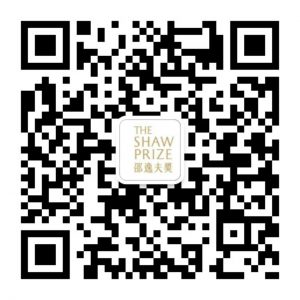for his development of the arithmetic theory of thin groups and the affine sieve, by bringing together number theory, analysis, combinatorics, dynamics, geometry and spectral theory.
The Shaw Prize in Mathematical Sciences 2024 is awarded to Peter Sarnak, Gopal Prasad Professor, School of Mathematics, Institute for Advanced Study and Eugene Higgins Professor of Mathematics, Princeton University, USA, for his development of the arithmetic theory of thin groups and the affine sieve, by bringing together number theory, analysis, combinatorics, dynamics, geometry and spectral theory.
A natural number is called a prime number if it is larger than 1 and is not the product of two strictly smaller natural numbers which themselves are larger than 1. For example, 2 is a prime number, but 4 = 2 × 2 is not. Euclid’s theorem (circa 300 BCE) asserts that any natural number other than 0 and 1 is the product of prime numbers, and that there are infinitely many prime numbers. The study of the distribution of the prime numbers is a core topic in Number Theory.
Sarnak pioneered the search for almost prime values of polynomials in sparse subsets arising as the orbit of a thin group. A thin group is a subgroup of an arithmetic group with a Goldilocks property: it is neither too large (being of infinite index) nor too small (having the same Zariski closure as the arithmetic group). Thin groups arise very naturally in pure and applied mathematics. For example, the symmetry group of integral Apollonian circle packings is a thin group. In addition, there is an abundance of Kleinian groups, or more generally monodromy groups of differential equations, that are thin groups.
Peter Sarnak was born in 1953 in Johannesburg, South Africa and is currently Gopal Prasad Professor of Mathematics at the Institute for Advanced Study in Princeton and Eugene Higgins Professor of Mathematics at Princeton University, USA. He received his Bachelor’s degree in Mathematics from the University of Witwatersrand, South Africa in 1975 and PhD in Mathematics from Stanford University, USA in 1980. He was an Assistant Professor (1980–1983) and Associate Professor (1983) at New York University, USA. He then joined Stanford University where he was successively an Associate Professor (1984–1987) and Professor (1987–1991). From 1991, he moved to Princeton University and was appointed H Fine Professor (1995–1996) and the Chair of Mathematics Department (1996–1999). He was a member of the Institute for Advanced Study (1999–2002 and 2005–2007) and has been a Professor there since 2007. He was also a Professor at the Courant Institute of Mathematical Sciences, New York University (2001–2005) and has been appointed as Eugene Higgins Professor of Mathematics at Princeton University (2002–). He is a member of the US National Academy of Sciences and a Fellow of the Royal Society of London.
